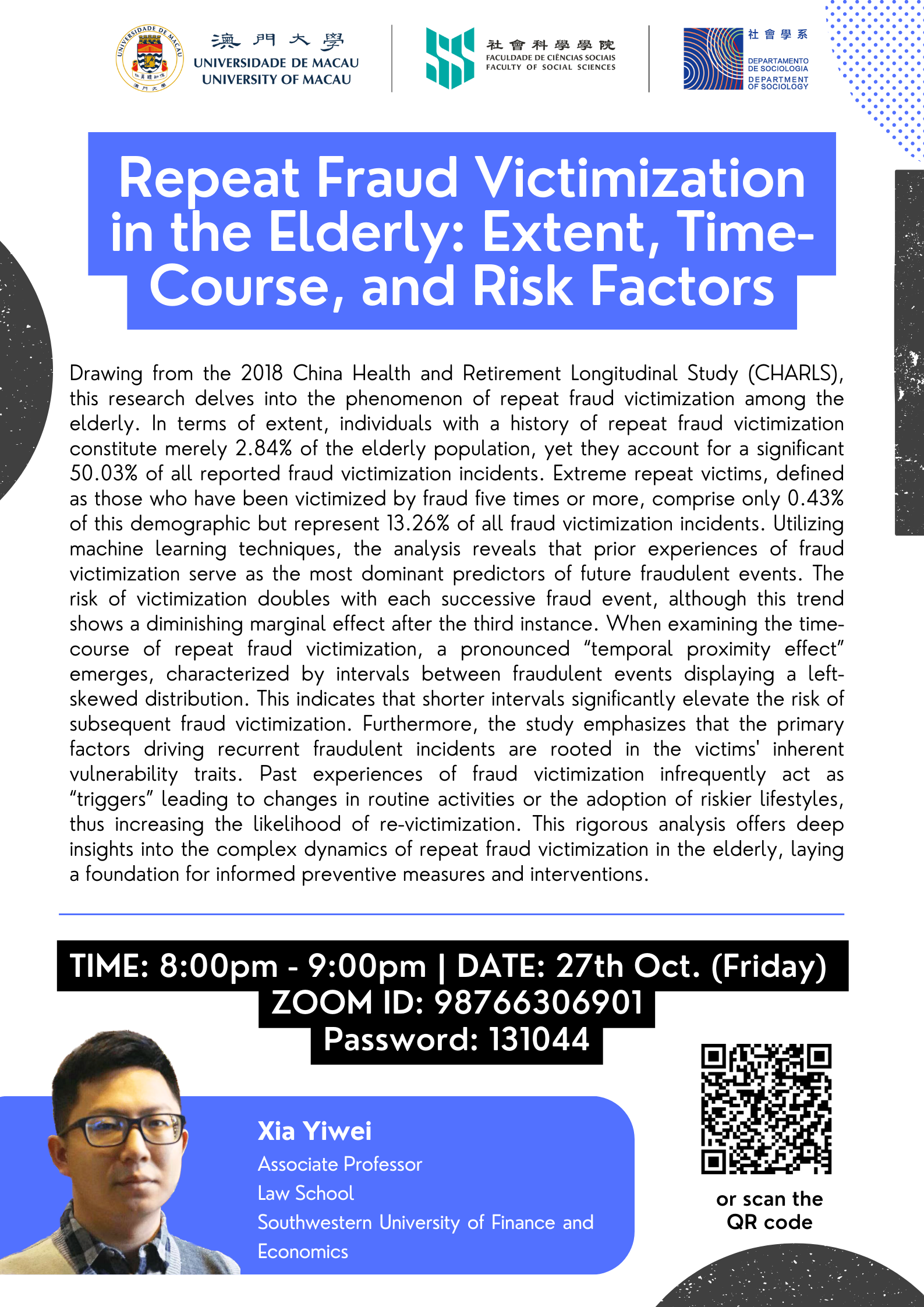
Date: October 27
Time: 8:00 pm – 9:00 pm
Speaker: Prof. Yiwei XIA
Venue: Zoom ID 98766306901 (password: 131044)
Organizer: Department of Sociology
Phone: 8822 4595
Drawing from the 2018 China Health and Retirement Longitudinal Study (CHARLS), this research delves into the phenomenon of repeat fraud victimization among the elderly. In terms of extent, individuals with a history of repeat fraud victimization constitute merely 2.84% of the elderly population, yet they account for a significant 50.03% of all reported fraud victimization incidents. Extreme repeat victims, defined as those who have been victimized by fraud five times or more, comprise only 0.43% of this demographic but represent 13.26% of all fraud victimization incidents. Utilizing machine learning techniques, the analysis reveals that prior experiences of fraud victimization serve as the most dominant predictors of future fraudulent events. The risk of victimization doubles with each successive fraud event, although this trend shows a diminishing marginal effect after the third instance. When examining the time-course of repeat fraud victimization, a pronounced “temporal proximity effect” emerges, characterized by intervals between fraudulent events displaying a left-skewed distribution. This indicates that shorter intervals significantly elevate the risk of subsequent fraud victimization. Furthermore, the study emphasizes that the primary factors driving recurrent fraudulent incidents are rooted in the victims’ inherent vulnerability traits. Past experiences of fraud victimization infrequently act as “triggers” leading to changes in routine activities or the adoption of riskier lifestyles, thus increasing the likelihood of re-victimization. This rigorous analysis offers deep insights into the complex dynamics of repeat fraud victimization in the elderly, laying a foundation for informed preventive measures and interventions.
Prof. Yiwei XIA is the Associate professor, Law School, Southwestern University of Finance and Economics. His research interests are Quantitative Method, Social Demography, Juvenile Delinquency, Addictive Behavior, and Substance Abuse.

